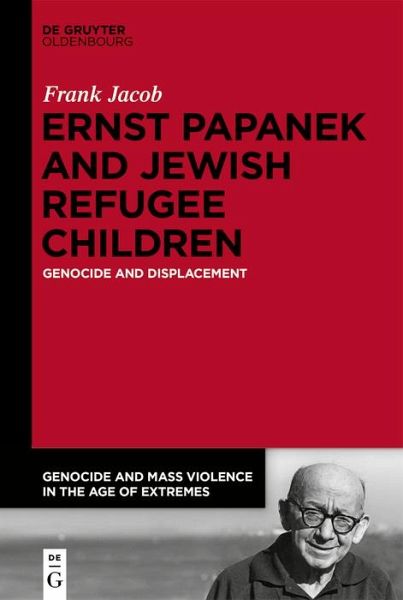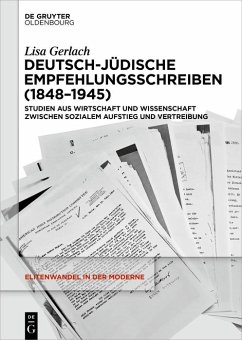
Ernst Papanek and Jewish Refugee Children (eBook, ePUB)
Genocide and Displacement

PAYBACK Punkte
0 °P sammeln!
Ernst Papanek was an Austrian pedagogue who worked with Jewish refugee children in France in 1939/40, before he was forced to leave to the United States. There, he nevertheless continued his work to point out the impact of war, genocide and displacement on children, who were often forgotten in major discussions about the war and the losses it had created. This volume provides a short biographical outline of Papanek and a theoretical discussion about the impact of war and genocide on children who are forced out of their lives and who were not only physically displaced as a consequence. The seco...
Ernst Papanek was an Austrian pedagogue who worked with Jewish refugee children in France in 1939/40, before he was forced to leave to the United States. There, he nevertheless continued his work to point out the impact of war, genocide and displacement on children, who were often forgotten in major discussions about the war and the losses it had created. This volume provides a short biographical outline of Papanek and a theoretical discussion about the impact of war and genocide on children who are forced out of their lives and who were not only physically displaced as a consequence. The second part of the book assembles some of Papanek's important texts about the children he had worked with and for, to make his thoughts and important considerations accessible for a broader academic and non-academic public alike.
Dieser Download kann aus rechtlichen Gründen nur mit Rechnungsadresse in A, B, BG, CY, CZ, D, DK, EW, E, FIN, F, GR, HR, H, IRL, I, LT, L, LR, M, NL, PL, P, R, S, SLO, SK ausgeliefert werden.













